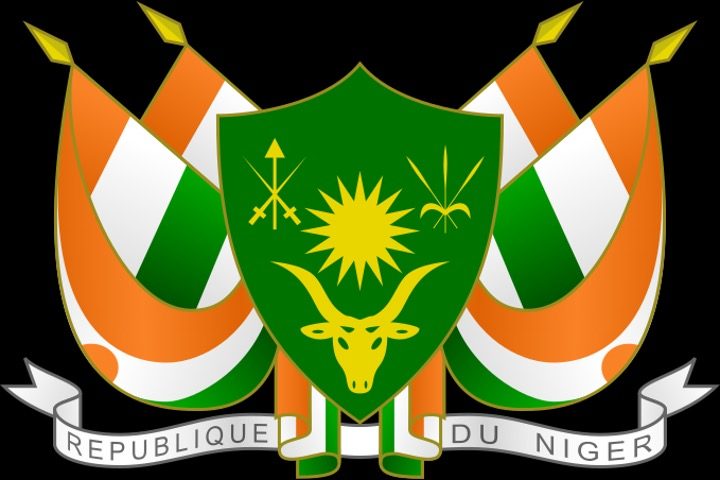
Senator Rand Paul (R-Ky.) is seeking information from the Biden administration regarding U.S. military operations in Niger and other countries around the world: Under what authority are these operations being undertaken, what is their purpose, and how many U.S. casualties have resulted from them?
After 10 years of a U.S. military presence in Niger, the ostensible purpose of which is to train Nigerien forces, the United States still has approximately 1,016 troops in the country, according to a June letter from President Joe Biden to congressional leaders.
The U.S. presence in Niger has already cost several American lives. In 2017, four U.S. soldiers were killed in an ambush during a “kill or capture mission” that the Pentagon had claimed was a reconnaissance mission, according to ABC News.
But since the July 26 coup d’état that overthrew the elected government of Niger and replaced it with a military junta — one of whose leaders, Brigadier General Moussa Salaou Barmou, trained at Fort Benning, Georgia, and the National Defense University in Washington — U.S. troops in Niger are in an even more precarious position.
Paul, a member of the Senate Foreign Relations Committee, thinks it’s high time the Pentagon came clean on exactly what it’s doing in Niger and other foreign countries.
“As citizens of a constitutional republic, Americans must be informed of hostilities involving the Armed Forces so the people can participate in national debates over war and peace,” Paul wrote in a Tuesday letter to Defense Secretary Lloyd Austin.
“Congress,” Paul pointed out, “never voted to authorize U.S. combat operations in Niger.” Yet the operations continue, with varying supposed justifications from the executive branch.
In his June letter, Biden claimed the authority to order such operations under the 2001 Authorization for Use of Military Force (AUMF), “which,” Paul noted, “was narrowly tailored to bring justice to those who played a role in the 2001 terrorist attacks.” Biden also contended that operations in other African and Asian countries were covered by the AUMF.
At other times, the Pentagon has argued that sections 127e and 333 of Title 10 of the U.S. Code granted it the prerogative “to work with foreign powers … in ways that directly involved or foreseeably led to combat in numerous countries around the world, including Niger,” penned Paul. Section 127e gives the Defense Department a $100 million annual slush fund to dole out to individuals, groups, and foreign countries allegedly assisting the United States in combating terrorism, while section 333 lets the department “train and equip foreign forces to conduct counterterrorism,” wrote the senator.
All of this happens with little to no congressional oversight. In a November report on sections 127e and 333, the Brennan Center for Justice observed:
Congress’s understanding of U.S. war-making is often no better than the public record. The Department of Defense provides congressionally mandated disclosures and updates to only a small number of legislative offices. Sometimes, it altogether fails to comply with reporting requirements, leaving members of Congress uninformed about when, where, and against whom the military uses force. After U.S. forces took casualties in Niger in 2017, for example, lawmakers were taken aback by the very presence of U.S. forces in the country.
Ordinary citizens are even harder pressed to discover exactly what the U.S. military is up to. “Investigative journalist Nick Turse … has been thwarted at all attempts to get a record of the military’s African trainees, particularly those associated with the region’s many coups in the last decade since Washington has been pouring military assistance into the region,” reported Responsible Statecraft. “He had to file a Freedom of Information request to find out how many 127e operations the U.S. had across the globe — it turns out, 23 from 2017 to 2020. Just the tip of the iceberg, no doubt.”
Despite these formidable obstacles, Paul is hoping to wring some answers out of Austin.
“Under what authorities, and for what purpose, did U.S. forces provide training to Moussa Salaou Barmou or any of the other Nigerien forces and coup leaders who overthrew President Mohamed Bazoum?” he asked.
Similarly, he inquired as to what authorized the botched 2017 mission in Niger.
“How many times have U.S. forces taken fire from or fired upon hostile forces in Niger?” he wrote. “How many U.S. service members have been killed or wounded in Niger since 2013?”
Paul requested that Austin give an accounting of his department’s uses of Title 10 both in Niger and around the globe. Which sections were invoked for “combat operations or activities,” and how many times? “How many U.S. casualties … can be attributed to” these activities? How much section 127e and 333 funding was disbursed?
The senator also voiced concerns that the Pentagon is funding countries and organizations that are engaged in human-rights violations, asking Austin if his department has similar concerns and what steps it has taken to ensure that it does not bankroll such entities.
He further inquired about the administration’s view of its authority under the AUMF. Specifically, he wants to know what groups the administration considers “targetable” under the AUMF, in how many countries U.S. forces are acting under color of the AUMF, and how many operations conducted under the AUMF are in volatile regions, thereby endangering American personnel in those regions.
Paul gave Austin until September 25 to respond to his letter. He did not, however, specify the consequences should Austin fail to respond.



